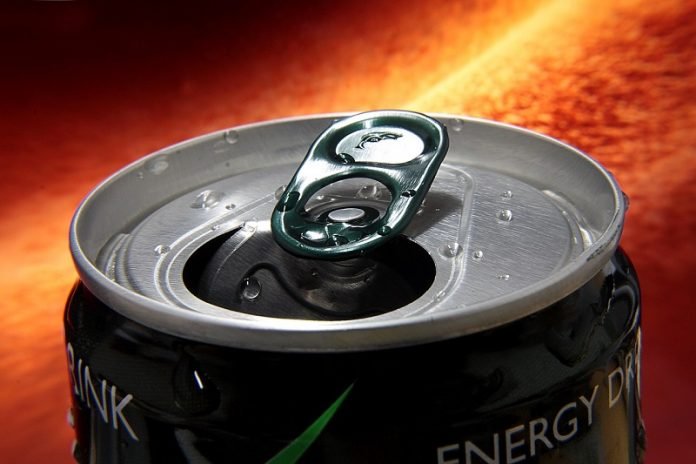
In a new study, researchers found that energy drinks may bring health risks to heart health and blood pressure.
They found that drinking 32 ounces of an energy drink in a short time may raise blood pressure and the risk of electrical disturbances in the heart.
The electoral disturbances could affect normal heart rhythm.
The research was conducted by a team from the University of the Pacific.
In the study, the team examined 34 healthy people between the ages of 18 and 40 years.
They were randomly assigned to drink 32 ounces of one of two common caffeinated energy drinks or a placebo drink on three days.
The drinks were consumed within a 60-minute period.
Both energy beverages contained 304 to 320 milligrams of caffeine per 32 fluid ounces.
Other common ingredients in the energy drinks included taurine (an amino acid), glucuronolactone (found in plants and connective tissues) and B-vitamins.
The placebo drink contained carbonated water, lime juice, and cherry flavoring.
The team measured the electrical activity of the people’ hearts and recorded their blood pressure.
They found that people who consumed either type of energy drink had much longer biomarker called QT intervals four hours after drinking than people had placebo drinks.
The QT interval is a measurement of the time it takes ventricles in the heart (the lower chambers) to prepare to generate a beat again.
If this time interval is either too short or too long, it can cause the heart to beat abnormally, a condition may be life-threatening.
The team also found that 4 to 5 mm Hg increase in blood pressure in people who consumed the energy drinks.
These findings show a link between consuming energy drinks and changes in heartbeat and blood pressure.
The researchers suggest that the effects cannot be attributed to caffeine.
It is important to examine the particular ingredient or combination of ingredients in different types of energy drinks in the future.
The study is the largest controlled study that examines the effects of energy drinks on the heart and blood pressure in healthy volunteers.
The team said that energy drinks are highly accessible and commonly used by a large number of teens and young adults.
Understanding how these drinks can affect the heart is extremely important.
The public should be aware of the impact of energy drinks on their body especially if they have other underlying health conditions.
The lead author of the study is Sachin A. Shah, Pharm.D., professor of pharmacy practice at the University of the Pacific.
The study is published in the Journal of the American Heart Association.
Copyright © 2019 Knowridge Science Report. All rights reserved.



